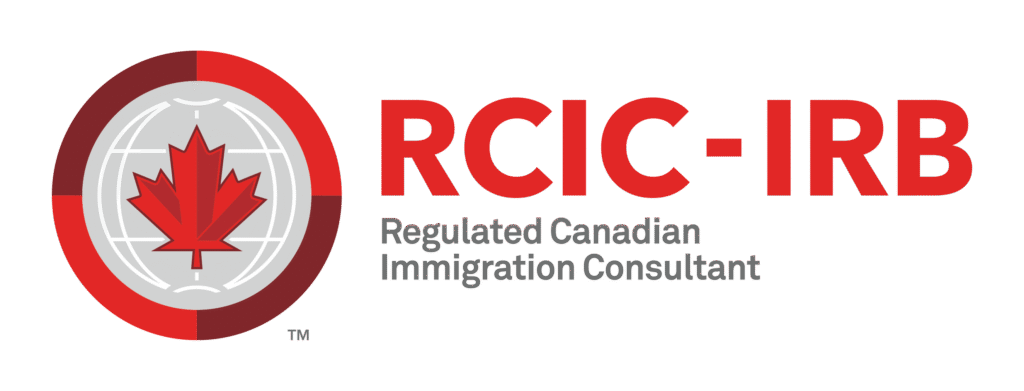Study in Canadian colleges

The college programs in Canada are geared towards preparing applicants for the job market. Therefore, colleges focus less on theoretical courses and pay more attention to practical and hands-on aspects.
College programs in Canada are recommended for those looking to quickly enter the workforce and seeking medium-income, highly practical jobs. We advise attending colleges that include an internship as part of the core curriculum because this allows applicants to expand their professional connections during the internship and increases their chances of being hired.
Colleges in Canada are divided into public and private institutions. Generally, the admission requirements for colleges in Canada are simpler than those for universities, with fewer prerequisites for entry. Additionally, the language proficiency scores needed for college admission in Canada are typically less stringent than those for universities.
Getting accepted into a college program in Canada is a specialized process, and we recommend discussing it with your consultant. This is especially important if the applicant intends to apply for permanent residency in Canada through their studies, as having a full understanding of the selected program at the college is crucial.
Studying at Canadian colleges experience
If we compare colleges in Canada to the educational system in Iran, colleges serve a similar role to technical and vocational training centers in Canada, primarily focusing on preparing the workforce for the job market. In contrast, Canadian universities prepare applicants for academic purposes.
The following programs are taught at colleges:
DEC program. This program is offered at colleges in Quebec, and the prerequisite for admission is a high school diploma.
Diploma program (the prerequisite for this program is a diploma and pre-university education).
Certificate program (the prerequisite for these programs is a diploma).
Post-bachelor program (the prerequisite for these programs is a bachelor’s degree).
Bachelor’s program (this program is the same as the bachelor’s degree, with the prerequisite for admission being a diploma and pre-university education).
The required language score to get admission to a college in Canada
Some colleges require a minimum IELTS score of 6. However, at many colleges, applicants have the option to prove their English or French language skills by taking an online test.
College tuition fees in Canada
Tuition fees for colleges in Canada range from $8,000 to $16,000 per year. The cost can vary depending on the program and intensity of the classes. During your time in college, you will also need to cover your health insurance costs. Don’t forget to add the cost of living in Canada to your list of educational expenses.
Age requirement for obtaining a study permit for Canadian colleges
There are no age restrictions for getting a study permit or admission to colleges in Canada. However, immigration officers definitely consider age as a factor in assessing visa applications, and the applicant’s study plan needs to be convincing to the officer. For example, it’s hard for a 50-year-old applicant who wishes to study at a college in Canada to convince an officer with their documentation that they intend to study and return to their home country. So, while there are no legal age restrictions for admission, the applicant’s case must be justifiable to the immigration officer.
Possibility of obtaining a companion visa
The accompanying person of the main applicant can apply for a tourist visa, and there are no restrictions in this regard. The applicant’s child will also be eligible for free education in Canada.
List of colleges in Canada by province
Alberta
Alberta Vocational College
Edmonton
Lac La Biche
Bow Valley College
Nazarene University College
Alberta College of Art and Design
DeVry Calgary
Olds College
Keyano College
Lethbridge Community College
Mount Royal College
Northern Alberta Institute of Technology
Medicine Hat College
Newman Theological College
Northern Lakes College
Red Deer College
Southern Alberta Institute of Technology
Taylor University College and Seminary
St. Mary’s College
British Columbia
Camosun College
College of New Caledonia
College of the Rockies
Douglas College
Langara College
Northwest Community College
North Island College
Northern Lights College
Okanagan College
Selkirk College
Vancouver Community College
British Columbia Institute of Technology (BICT)
Justice Institute of British Columbia
Nicola Valley Institute of Technology
Ontario
Algonquin College, Ottawa
Cambrian College, Sudbury
Canadore College, North Bay
Centennial College, Toronto
Collège Boréal (FR), Sudbury
Conestoga College, Kitchener
Confederation College, Thunder Bay
Durham College, Oshawa
Fanshawe College, London
Fleming College, Peterborough
George Brown College, Toronto
Georgian College, Barrie
Humber College, Toronto
Collège La Cité (FR), Ottawa
Lambton College, Sarnia
Loyalist College, Belleville
Mohawk College, Hamilton
Niagara College, Welland
Northern College, Timmins
St. Clair College, Windsor
St. Lawrence College, Kingston
Sault College, Sault Ste. Marie
Seneca College, Toronto
Sheridan College, Oakville
Saskatchewan
Carlton Trail Regional College
Cumberland College
Gabriel Dumont Institute
Great Plains College
Lakeland College
Luther College
Lutheran Theological Seminary Saskatoon
North West Regional College
Northlands College
Parkland College
Saskatchewan Indian Institute of Technologies
Saskatchewan Institute of Applied Science and Technology
Southeast Regional College
St. Andrew’s College
St. Thomas More College
Manitoba
Assiniboine Community College
Booth University College
Manitoba Institute of Trades and Technology
Red River College of Applied Arts, Science and Technology
Prince Edward Island
Acadia College P.E.I.
Holland College
New Brunswick
New Brunswick Community College
Collège communautaire du Nouveau-Brunswick
New Brunswick College of Craft and Design
Maritime College of Forest Technology
private occupational training institutions
Nova Scotia
Nova Scotia Community College (NSCC)
Newfoundland and Labrador
Sir Wilfred Grenfell College
College of the North Atlantic
Transferring course credits from college to universities in Canada
Credit transfer is a common practice for studying in Canada, applicable to both Canadian and international students. In this process, a student starts a program at their desired college and, based on their GPA from the college, can transfer their courses to another college or university. This method is particularly popular among applicants aiming for top-ranked universities since they can enter a college program that requires less competition and, while improving their language skills and academic foundation, transfer their courses to the desired university to continue their studies there. Canada is the most advanced country in the world regarding credit transfer between colleges and universities. Among Canadian provinces, British Columbia has the strongest system for credit transfer. Every year, over 60,000 students across Canada utilize the credit transfer system.
Studying in college, a bridge to university
Colleges sometimes serve as a bridge between high school and universities. But how? Check out the two points below, which are crucial considerations for choosing colleges.
Smaller class sizes at colleges compared to universities
Colleges tend to have a more intimate environment than universities, with fewer students in college classes. This provides a great opportunity for students to prepare and acclimate to the academic setting. So, in this regard, colleges help ease the shock of entering university life.
Combination of college and university with a 3+1 or 2+2 program
Consider the real scenario below: Arian and Ryan are both 19 years old and want to study engineering at York University. The tuition for York University is around thirty thousand dollars a year.
Arian saved thirty-two thousand dollars how?
Ryan went straight to York and paid thirty thousand dollars each year for four years. In total, he spent one hundred and twenty thousand dollars for computer engineering.
After consulting with RainCity, Arian chose a different path. Arian enrolled in Seneca College and studied for two years, then spent the next two years at York University, graduating in the same field: computer engineering. Arian paid fourteen thousand dollars for two years of tuition and thirty thousand dollars for the other two years, totaling eighty-eight thousand dollars for computer engineering. Yes, with this simple planning, Arian saved thirty-two thousand dollars.
Possibility of obtaining permanent residency after studying in Canadian colleges
After completing college programs in Canada, depending on the province you’ve studied in, there are various immigration pathways to obtain permanent residency in Canada. For more information, please visit the page on permanent residency after studying in Canada.
In each of Canada’s 11 provinces, there are specific requirements for obtaining residency after studying in college programs. In some provinces, you can apply for permanent residency immediately after completing your education, while in others, applicants first need to obtain a work permit and then a residency visa. It’s advisable to consult with RainCity experts regarding this matter.
!Important
Choosing the right type of college in Canada is very important, as the conditions for obtaining residency after studying in Canadian colleges can vary significantly depending on the selected program. Some programs make the applicant eligible for residency and work visas, while others do not have this advantage. Therefore, consulting with admission and study visa experts for pursuing education in Canada is crucial.





